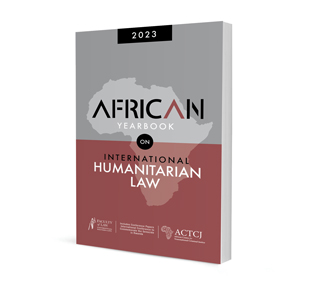
ARTICLE
Bridging past, present and future: The impact of Rwanda’s constitutional reform on transitional justice and genocide prevention
Author: Rita Ogao
ISSN: 2521-2621
Affiliations: LLB from the University of East Anglia
Source: African Yearbook on International Humanitarian Law, 2023, p. 99 – 122
https://doi.org/10.47348/AYIH/2023/a5
Abstract
Following the 1994 genocide against the Tutsi, Rwanda embarked on a transitional justice journey, with reconciliation, non-recurrence and memorialisation at the heart of the agenda. One of the key legal changes in the subsequent years was the promulgation of the Constitution of the Republic of Rwanda 2003. Given that constitutions serve as the supreme law of a nation, the specific language and substance wield the potential to shape a nation’s trajectory by prescribing the principles and values that underpin governance and everyday life. Drawing upon the symbolic weight of constitutional frameworks, this article explores how the Constitution of Rwanda 2003 embodies the imperative of ‘never again’, by denouncing the ideology that prevailed leading up to and during the 1994 genocide, signalling a new ideology conducive to reconciliation and entrenching principles of transitional justice in its provisions. This article seeks to illustrate how reconciliation, non-recurrence and institutional reform—all which are central to transitional justice mechanisms—are entrenched in the Constitution and how this plays out on both governance and societal levels. Using Rwanda as a case study, this article explores the transformative potential of constitutions as transitional justice and genocide prevention tools. Importantly, it asserts that the more explicitly a constitution signals a new ideology and addresses a nation’s past legacy of genocide or conflict, the higher the prospects of it serving as a transformative transitional justice and genocide prevention tool.